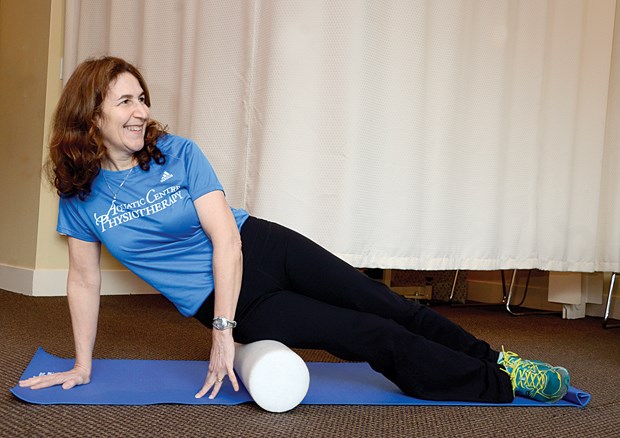Did you make a New Year's resolution to get really fit and now find yourself injured and back on the couch? It's important to understand why this happens so that one breaks the cycle.
Exercise places stress on our body. If the exercise stress is within the tissue's ability for adaptation, the body will repair and get stronger. If the stress is excessive, injury occurs.
To avoid injury one needs to start training slowly to allow the body time to adapt. Exercise causes microscopic tears in the muscles, sees fuel sources depleted and the immune system compromised, leaving one temporarily weaker. Rest and recovery are an important part of training as it's during this time that the body repairs itself and adapts. Postexercise, we need to refuel and rehydrate to replace depleted nutrients and deliver nutrients needed for tissue repair.
Steps to Aid Recovery:
Cool down after a workout to avoid muscle cramping. Change into dry clothes to prevent the body from getting too cold and then begin replacing fluids and fuel.
Keep well-hydrated and fuelled while exercising by drinking water and using easy to digest carbohydrate fuel for exercise lasting more than an hour. Continue drinking water post-exercise. Water flushes out inflammation. If you're dehydrated your heart is pumping sludge, which slows down healing. It's best to avoid alcohol postexercise as it interferes with hydration.
For two hours postworkout, the body works to restore the depleted muscles with glycogen to pre-exercise levels. Carbohydrates replace glycogen in the muscles and liver. Protein is vital for growth and repair of muscle tissue.
Try a drink or food containing a four-to-one ratio of carbohydrates to protein starting 15-30 minutes post-exercise. Consume a diet high in anti-inflammatory foods and antioxidants, vitamin C and E. Include nuts, dark green vegetables, whole grains, healthy fats, avocados, beans, seeds and wild fish. Pack a healthy snack if you're not working out from home.
Muscles repair while we sleep. Sleep seven to nine hours a night and plan a short nap during the day. Elevate your legs above the heart for short periods to flush muscles. Avoid hard workouts on successive days. Muscles need 24-48 hours to rest, repair and rebuild depending on the type of workout. Working out again too soon leads to tissue breakdown instead of building. Cross-training allows us to train more frequently. We can actively recover by choosing exercise that uses different muscle groups without slowing recovery.
Gentle stretching after exercises will return the muscle to its pre-exercise length and prevent stiffness.
Ice baths or cold water immersion helps decrease inflammation. Follow up with a hot shower to increase circulation, which aids recovery.
Massage or foam rolling helps to stimulate blood flow, which aids in recovery.
It's preferable to avoid using anti-inflammatory or pain medications. Inflammation is the body's signal to repair itself. Antiinflammatory medication can interrupt and slow down the normal healing process and give a false sense of relief that allows you to push too hard before you have truly recovered.
It's not only in our workouts that we become better athletes. Getting recovery right avoids excessive muscle soreness allowing one to bounce back from a workout quickly in readiness for the next training session.
Jacqui Steinberg, BScPT, CAFCI, is a registered physiotherapist at Aquatic Centre Physiotherapy at the West Vancouver Aquatic Centre. She has 25 years of experience in and specializes in orthopaedics and sports injuries. 604-925-3408 acphysio.com



